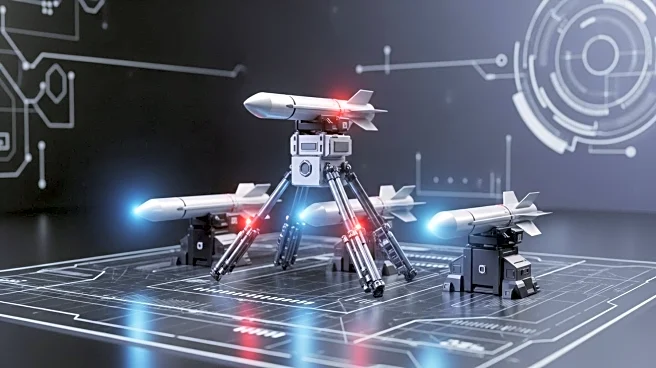What's Happening?
During a recent EU summit in Copenhagen, European leaders struggled to reach a consensus on how to respond to increasing Russian provocations, including airspace violations by drones and fighter jets. The summit aimed to build consensus on European rearmament priorities but was marked by disagreements over leadership and funding for Ukraine's resistance against Russia. European Commission President Ursula von der Leyen proposed several defence initiatives, including a European drone wall and surveillance networks, but faced opposition from major EU powers. Leaders like French President Emmanuel Macron and German Chancellor Friedrich Merz criticized the proposals, citing concerns over complexity and overregulation. The summit highlighted ongoing turf wars and political squabbles within the EU, complicating efforts to build a coherent defence strategy.
Why It's Important?
The inability of EU leaders to agree on a unified defence strategy has significant implications for European security and its response to Russian aggression. The lack of consensus may embolden Russia, perceiving Europe as weak and divided. This situation could undermine efforts to support Ukraine and strengthen European defence capabilities. The disagreements also reflect deeper issues within the EU, such as national interests and industrial rivalries, which hinder collaborative defence efforts. As Europe faces increasing security threats, the need for a cohesive and effective defence strategy becomes more urgent, impacting political stability and security across the continent.
What's Next?
The EU must address internal divisions and establish a clear defence strategy to counter Russian provocations effectively. Future discussions may focus on harmonizing military requirements and reducing dependence on non-European defence technologies. The coalition of willing nations, led by France and the UK, could play a pivotal role in advancing security guarantees for Ukraine. However, industrial rivalries and lack of mutual trust among EU members remain challenges. The EU's ability to project strength and determination towards Russia will depend on overcoming these obstacles and fostering greater collaboration among member states.
Beyond the Headlines
The summit's outcomes underscore the complex dynamics of European defence integration, highlighting ethical and strategic considerations. The EU's approach to defence reflects broader geopolitical shifts and the need to balance national sovereignty with collective security. The ongoing debates may influence future EU policies on defence spending and procurement, shaping the continent's military landscape. Additionally, the summit's focus on defence initiatives raises questions about the role of NATO and the EU's position in global security frameworks.










